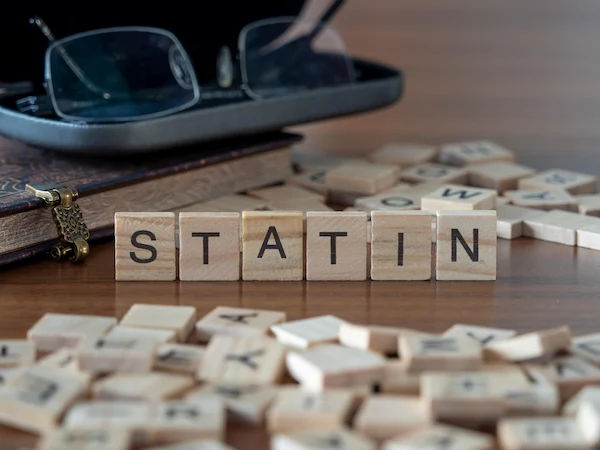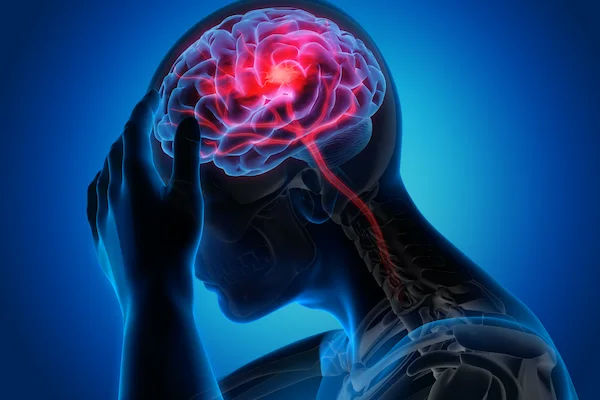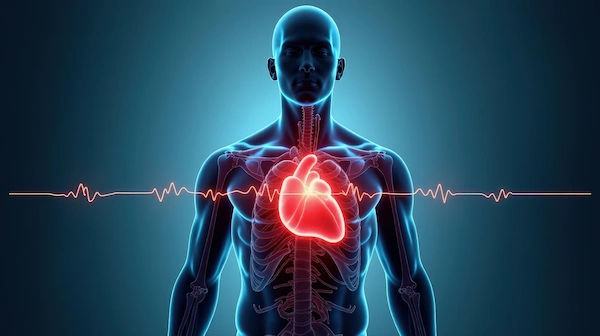- Male
- 41 Years
- 07/02/2025
I'm trying to understand my latest ECG report. It mentions "Sinus Rhythm," a normal axis, and a short PR interval. Could this indicate any issues? Also, I'm on Thyronorm 25 mg for the last 3 years, and my TSH level is at 4.8. Does this all sound normal, or should I be concerned?
Answered by 1 Apollo Doctors
Thats normal no need to worry maintain healthy lifestyle
Dr. Mubarak Suggests...
Consult a Cardiologist
Answered 04/07/2025
0
0

More Cardiology Health Queries
View allI've been dealing with moderate hypertension since I got diagnosed with a BP of 168122 on December 18th, and I've been put on Telma 40. But for the past three days, I've been having this awful headache and pain in my cheek, only on the left side of my face. My blood pressure is still at 150115 even though I've been taking the medicine for these three days. Should I be concerned about this, and what should I do next?
Given your recent diagnosis of moderate hypertension and the current blood pressure readings of 150115 despite taking Telma 40 (telmisartan), it is essential to address this promptly. Your persistent headache and left-sided cheek pain might indicate uncontrolled hypertension, which can lead to severe complications if not managed appropriately. Firstly, I recommend you seek immediate medical attention to evaluate your symptoms. Your healthcare provider might need to adjust your blood pressure medication or add additional antihypertensive agents to better control your blood pressure. They may also want to investigate the cause of your headache and cheek pain to rule out other potential issues, such as sinusitis or trigeminal neuralgia. In the meantime, continue taking your medication as prescribed and avoid any activities that could elevate your blood pressure further. Please contact your healthcare provider as soon as possible to discuss these symptoms.
Answered by 1 Apollo Doctors
I'm really worried about my dad. He's been dealing with heart issues and has stents. But he also has this tobacco chewing habit that I'm trying to help him kick. I've been thinking about getting him to try nicotine gum, but I'm not sure if it's safe for someone with his condition. Could it cause things like palpitations or any serious heart problems? I'm really hoping it won't have any bad effects. Would love to get your thoughts on this.
Nicotine chewing gums can be suitable for your father to help him quit his tobacco chewing habit. Nicotine gums are generally safe for heart patients with stents, but it is important to use them under medical supervision. The most common side effects of nicotine gums include mild irritation of the mouth and throat, hiccups, and jaw ache. However, if used as directed, the risk of serious side effects such as palpitations is low. It is recommended to start with a lower dosage of nicotine gum and gradually reduce the amount over time. I recommend consulting with your father's cardiologist or a healthcare provider to determine the most appropriate dosage and usage plan for him.
Answered by 1 Apollo Doctors
I'm really worried about this ongoing lightheadedness I've been dealing with for the past 8 months. It's like I'm under the influence of something, almost like alcohol, but I'm not. I've had these scary episodes where my chest hurts and my blood pressure shoots up to 150100. The ER told me it was a panic attack, and it's happened twice now. I've undergone so many testsHolter Monitor, ECG, EKG, chest and heart CT scans, even a brain MRI and countless blood tests. Everything comes back normal, including checks for anemia and thyroid issues. They did find H. Pylori, and I finished a 14-day antibiotic course for that, but otherwise, doctors say I'm fine. Yet, I can't shake these feelings and symptoms. I'm 30, 6 feet tall, and weigh 90 kg, with blood pressure often around 13590. I've even had ECGs during the pain episodes. Can you help me figure out what might be going on here?
It sounds like you have been through a thorough evaluation for your symptoms. Since all your reports have come back normal and your doctors have ruled out various possible causes, including panic attacks, it's important to consider other factors that may be contributing to your lightheadedness and other symptoms. One possible cause could be inner ear problems leading to vertigo-like symptoms. I recommend trying a medication called Meclizine (brand name Antivert) at a dose of 25-100 mg per day to help with your lightheadedness. Additionally, you may benefit from vestibular rehabilitation therapy to address any inner ear issues. It's also important to stay well-hydrated, maintain a healthy diet, and practice stress-reducing activities such as yoga or meditation. If your symptoms persist or worsen, it may be helpful to see an Ear, Nose, and Throat (ENT) specialist for further evaluation and management.
Answered by 1 Apollo Doctors
Disclaimer: Answers on Apollo 247 are not intended to replace your doctor advice. Always seek help of a professional doctor in case of an medical emergency or ailment.





